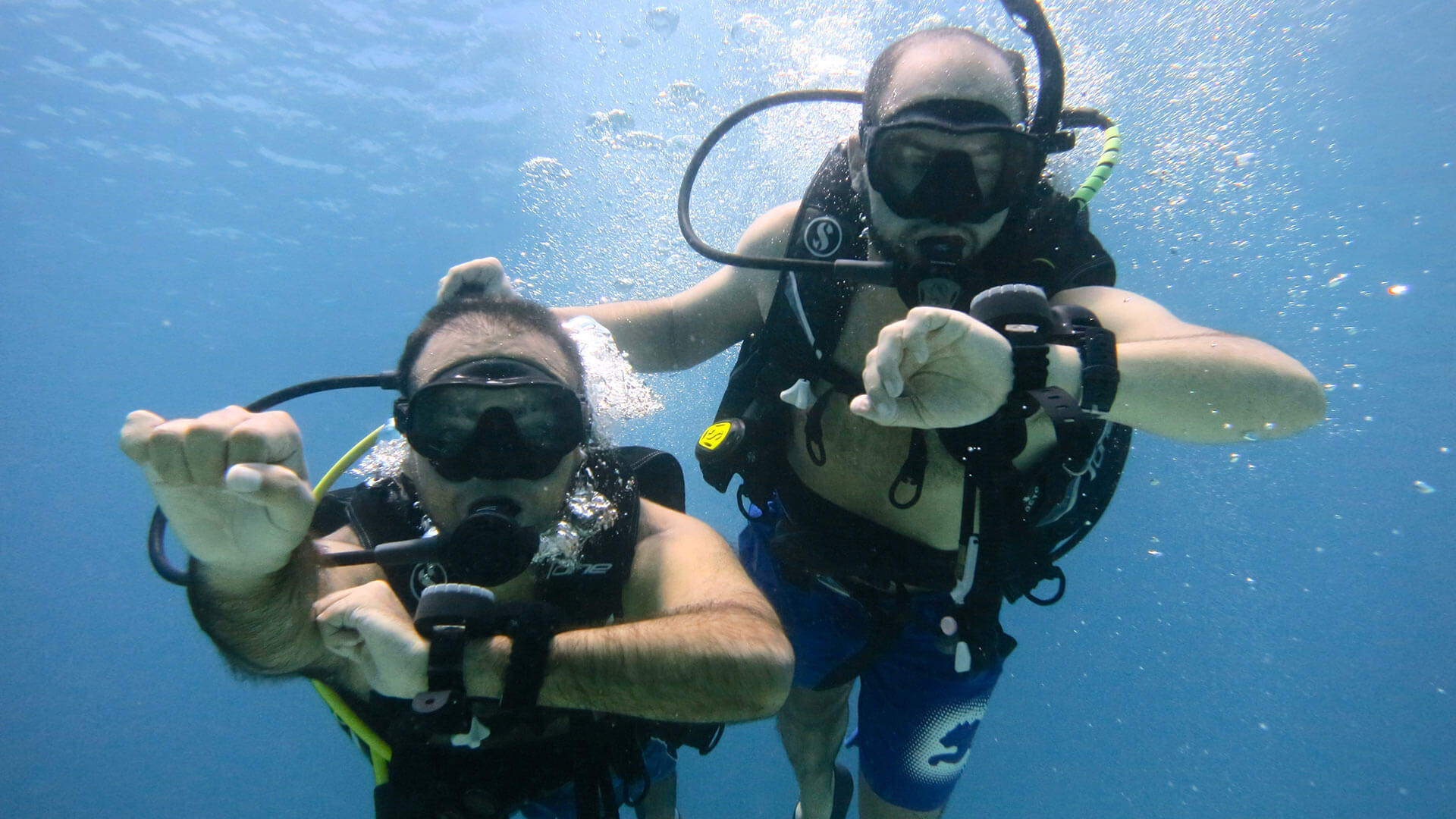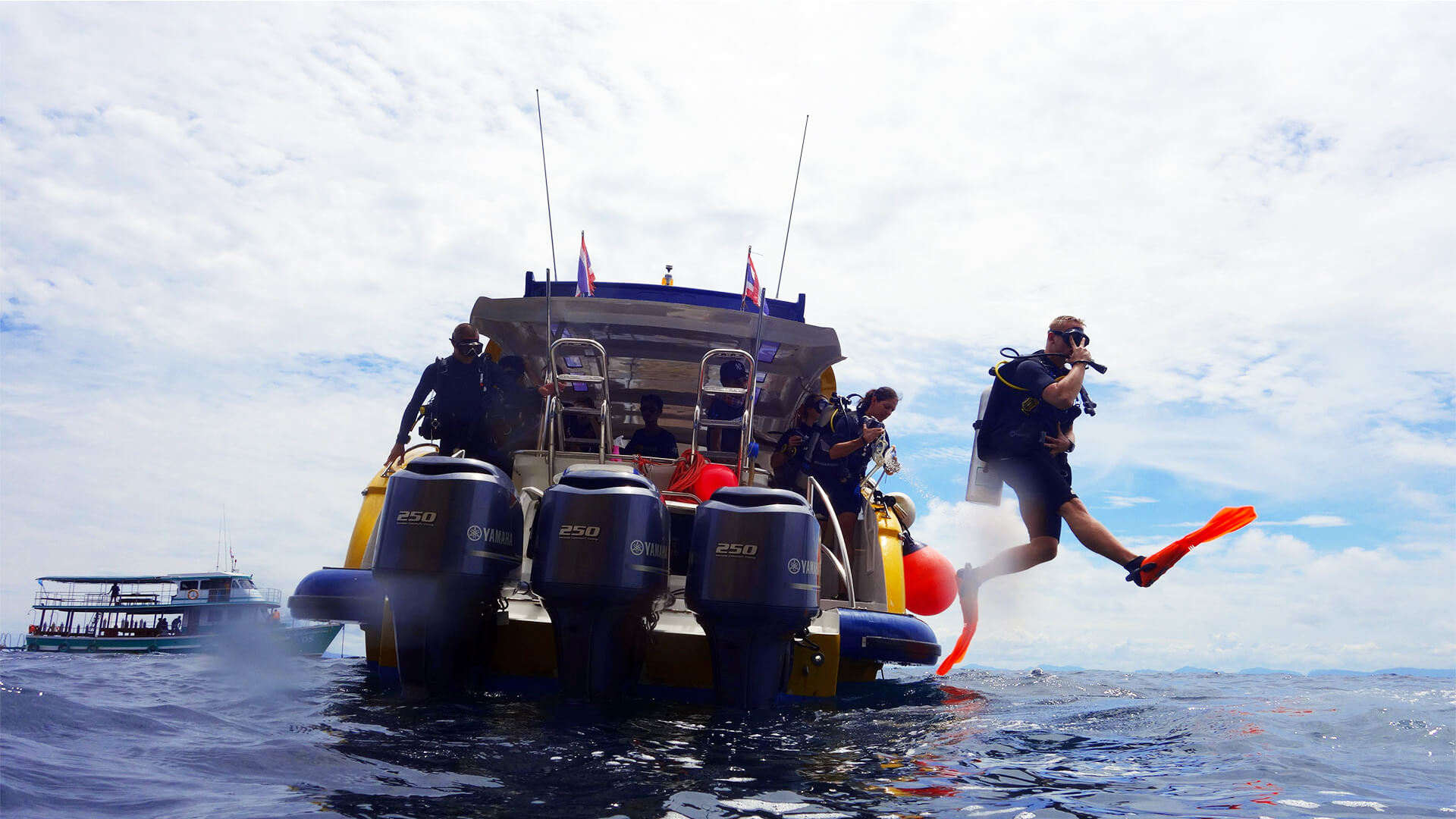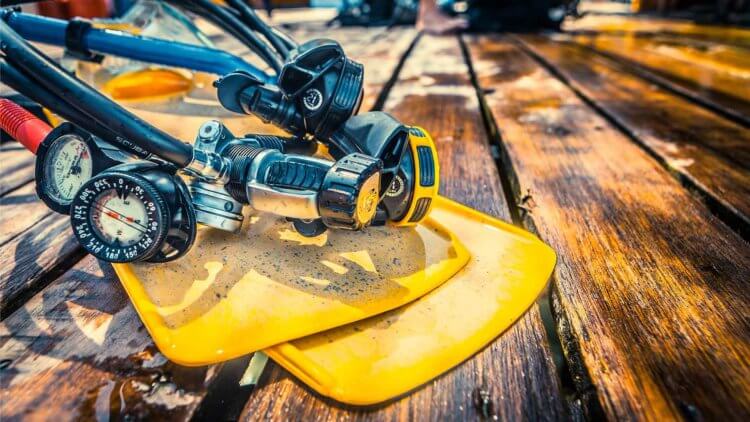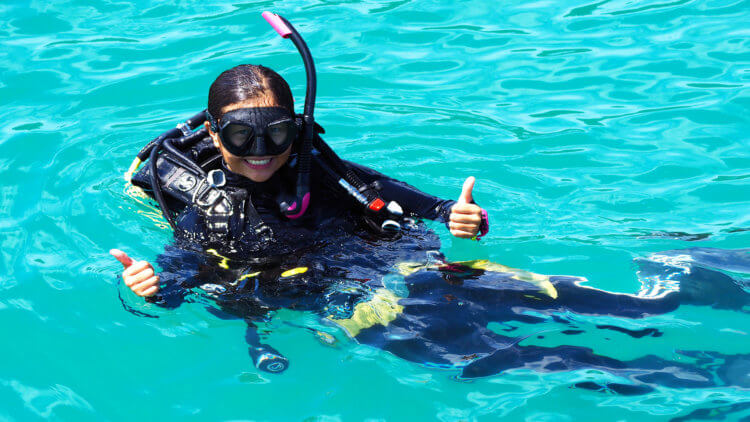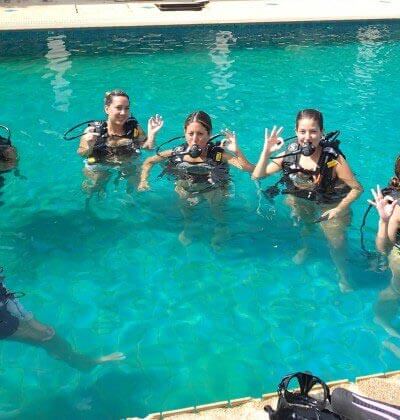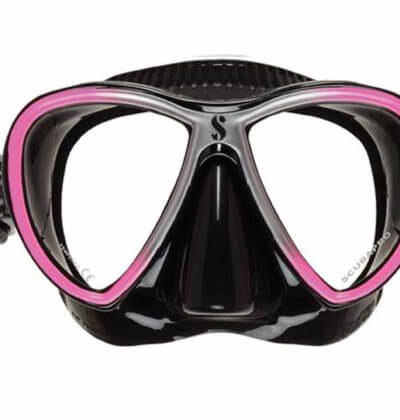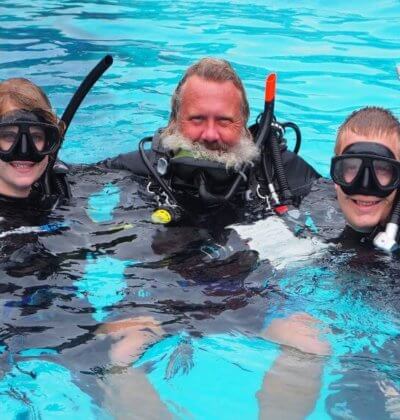Common Mistakes Newly Certified Divers Make
As a newly certified diver, everything is new & exciting. The PADI Open Water course does a great job of teaching you the safety aspects of diving and get you comfortable in the water. However, as a new diver, you will most likely make some rookie mistakes. Diving should be a fun and enjoyable experience so try and avoid these common mistakes that newly certified divers make.
Rushing
Slow down! If you are a newly certified diver there is no need to try and keep up with that old salty sea dog on the boat who has 1,000’s of dives. Take your time gearing up and remember to do each step of your pre-dive and buddy checks. Once in the water get comfortable before you descend then go down slowly and take the time to get your buoyancy right.
A good diver is a relaxed diver. Diving outside of your limits/experience trying to keep up with more experienced divers is how accidents happen. Stay slow and controlled.
Slow down, take it easy and most importantly have fun.
Not Investing in Personal Gear
The best investment you can now make as a certified diver is in some of your own personal equipment. Having your own gear you will then know that it fits well. You will also be familiar with where everything is like buckles and clips etc.
Your first investment after (or during) the course should be on your own mask and snorkel. There are millions of different shaped faces out there, with lots of different shaped masks. Having your own mask that fits properly will limit the need to wear a rental mask that is leaky due to improper fit.
Next purchase should be in fins and boots. Again this is an area where you can get your own combo of fins/boots that fits well. Rather than relying on the rental equipment at the dive centre that may be an ok fit but not a great fit.
If you are really bitten by the diving bug and looking at doing several dives and trips per year, then BCD, Reg & dive computers are the final investments to make.
Once you have your gear, maintain it well and it can last for years.
It’s Mask, Fins & Tank
“Can someone please pass me my flippers?”
This is a sentence you will hear a lot of newly certified divers mention whilst setting up o the dive boat. It should be an instant ‘Beer Fine’ for everyone on the boat. Fish use their fins to swim, as Scuba divers we are wanting to become fishlike as we explore the underwater world. Flippers are solely used for swimming laps at the pool.
On that note, we wear a scuba diving mask on our face, which covers our nose for equalisation. Googles only cover the eyes and again are used for swimming laps at the pool. The air we breathe is contained in a scuba tank or cylinder, it’s not a bottle!! Further what you are breathing is air, 79% Nitrogen and 21% Oxygen. It is not Oxygen. Oxygen is 100% and that is used in a diving emergency.
Be careful, if you use the terms goggles, flippers or bottle on a dive boat you may end up having to buy everyone on the boat a beer.
Relying on a Guide
There are some areas in the world where it is a local law that you must dive with a guide (like here in Thailand). Also don’t forget that it is also good practise to dive with a guide and get a local orientation to any new sites you dive at.
However you are now a certified diver, you need to pay attention to where you are, not placing all of your trust solely with your guide. Listen and pay attention to those all-important dive briefings, if the guide asks you to follow & stay close by they have most likely mentioned this for a reason.
Monitor your air closely, keep an eye on your depth’s & no-deco times, and communicate this information with your guide and buddy. Don’t just swim around following the guide, be an active participant in your own dive adventure & responsible for your safety. If you are on a guided dive look around fins some fish, if you see something interesting point it out to the group.
Being an engaging diver and paying attention to briefings etc will help keep you and the people with you safer. It makes the journey more enjoyable and make you a better diver.
Forgetting Buoyancy Checks & Control
A good diver will make a quick buoyancy check at the start of every dive. If you are over-weighted or under weighted during the dive it is simply because you forgot to do a buoyancy check on the surface. The easiest place to take another weight or drop weight is whilst you are on the surface near the boat or shore.
Also, keep a note of your weighting in your logbook as a reference for the next dive. Nothing worse than trying to guess how many weights you last dived with 2 or 3 months ago.
On another note, with buoyancy a lot of new divers tend to adjust the buoyancy underwater way too much. Don’t forget that our lungs hold between 5-7 litres of air & if we are correctly weighted for the dive we can then do a lot of our buoyancy control with the lungs & breath control. If adding or removing air from the BCD make small adjustments.
It is also important to remember to fully inflate the BCD on the surface. Once on the surface and your head is above water there should be no need to kick to stay afloat. Hold that inflator button down all the way until you hear the excess air escaping from one of the dump valves. It is common to see newly certified divers kicking to stay afloat or under-inflated on the surface.
Delaying Diving After Certification
One of the biggest mistakes new divers can make is to lose touch with the skills that they have just learnt. As a new diver you should be planning to dive as soon as possible after your certification. Diving is a great social activity, find your local dive club or community. Get involved and most importantly get out there diving.
Your PADI certification is good for life, but as with any skill. When you don’t use it, you lose it. If you won’t be able to dive for a while, review the PADI materials you received with your course to keep important dive procedures top of mind.
If you live in an area that may be along way away from any dive sites get online. There are a lot of online communities where you can discuss diving and find buddies. You may even be surprised and find a dive club in the middle of the desert who organise monthly or yearly dive trips as a local club.
Ask Questions
Lastly, every diver had to start somewhere. We were all newbies at some stage. Don’t be afraid to ask your instructor questions.
There is no shame in looking for some guidance. In a lot of cases, you’re not the only person who needs more info, there may be others in the dive group who are afraid to speak up.
Book some diving with Aussie Divers Phuket
Posted in Helpful Diving Info on .

